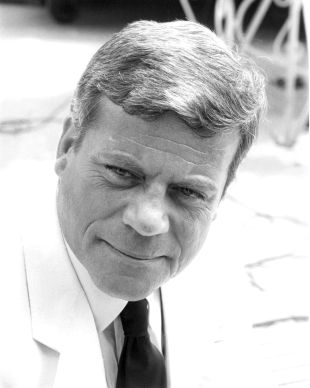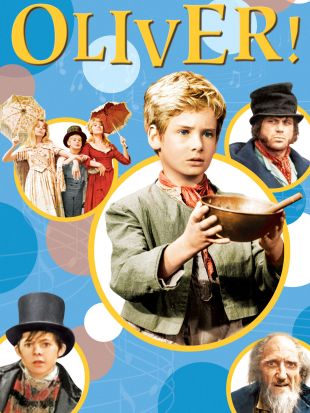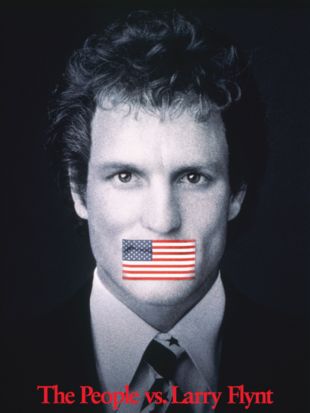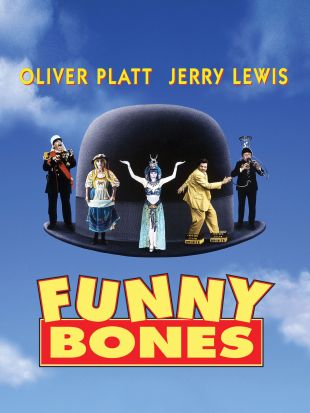Burly British actor Oliver Reed juggled over 60 film roles in 40 years and a full-blooded social life of women, booze, and bar fights, both of which became fodder for stories about one of England's darker leading men and villainous character actors. After getting his start in cult monster movies from Hammer Studios, Reed forged a body of work most associated with acclaimed directors Ken Russell, Richard Lester, and Michael Winner, in which he was able to sidestep his typecasting as a brooding heavy. Reed remains one of the only prominent British thespians never to amass any stage work, making him a pure film actor. Reed was born on February 13, 1938, in Wimbledon, England, a nephew of film director Sir Carol Reed (The Third Man). An antsy type given to partying with friends, Reed did not complete high school. He ended up taking on a variety of blue-collar jobs, including nightclub bouncer and hospital porter, and even a short career in pugilism. In 1960, he suddenly burst into films, showing up in the background of the Hammer films The Two Faces of Dr. Jekyll and Sword of Sherwood Forest, and as a gay ballet dancer in The League of Gentlemen. His first starring role came with Hammer in 1961, as the title character in Curse of the Werewolf. Years later, he would serve as narrator on a full Hammer retrospective, putting his sonorous speaking voice to good use and paying homage to his roots. Such early work paved the way for a steady flow of bad-guy roles in horrors, costume dramas, and suspense thrillers. Reed's intense, glowering features could also be manipulated for believable ethnic characterizations. Titles such as These Are the Damned and Pirates of Blood River (both 1962) followed. His first of six collaborations with Michael Winner came with The Girl Getters in 1966. In 1968, he won his first leading role in a universally well-received film, the Oscar-winner Oliver!, directed by his uncle, in which he played murderous thief Bill Sikes. Despite complaints of nepotism, Reed insisted he had to persuade his uncle to cast him, even though his credentials closely matched the needs of the part. Another watershed moment came in 1969, when Ken Russell cast him as one of the leads in his adaptation of D.H. Lawrence's Women in Love. While the film was a well-received treatise on sexuality and marriage, it achieved some notoriety for featuring the first-ever full-frontal male nudity in an English-language commercial film. Reed and Alan Bates engage in a memorable nude wrestling match that audaciously fleshes out the film's themes. Reportedly, Russell had planned to scrap the scene, worried about censor backlash, until Reed wrestled him into including it, literally pinning him down, in Russell's kitchen. Still, Reed told the Los Angeles Times he had to drink a bottle of vodka before he could relax enough to film the scene. The actor and director would work together five more times, including The Devils (1971) and Tommy (1975), in which Reed played Frank Hobbs. Reed was also known for portraying musketeer Athos in three of Richard Lester's film versions of Alexandre Dumas' famous tale. Reed appeared in The Three Musketeers (1973) and its sequel, The Four Musketeers (1975), which originally had been planned as one long movie. He revived the role in 1989 for The Return of the Musketeers. During filming of the windmill scene in the first film, Reed was nearly killed when he received an accidental stab wound in the neck. Add in 36 facial stitches following a bar fight in 1963, and the actor had more than his share of scrapes. Reed peaked in many ways in the mid-'70s, and had to settle on genre work for much of his career. Films such as Dr. Heckyl and Mr. Hipe (1980), Venom (1982), Gor (1987), and Dragonard (1987) became his regular source of paychecks for many years. For every respite, such as Nicolas Roeg's Castaway (1987) or Terry Gilliam's The Adventures of Baron Munchausen (1989), there was a return to familiar territory with garbage like House IV: Home Deadly Home (1991). Reed's most familiar role for modern audiences was also his last. The actor appeared in Oscar-winner Gladiator (2000) as Proximo, the amoral merchant who trains the enslaved fighters to kill and be killed. When he died midway through production, Reed unwittingly became part of a groundbreaking three-million-dollar endeavor by director Ridley Scott to digitally re-create his likeness in order to film Proximo's death scene. A three-dimensional image of Reed's face was scanned into computers so it could smile and talk, then digitally grafted onto a body double. Reed died in Malta, where Gladiator was being filmed, on May 2, 1999, the result of a heart attack brought on by one last night of hard drinking, which included three bottles of downed rum and arm wrestling victories over five sailors. He was survived by his third wife, Josephine Burge, as well as a son (Mark) and a daughter (Sarah), one each from his previous two marriages.

Oliver Reed
Share on
Biography by AllMovie
Movie Highlights
Factsheet
- Was expelled from 13 grammar schools; quit school and ran away from home at the age of 17.
- Worked his first job as a bouncer at a Soho strip club.
- Had no acting experience prior to making films.
- In 1961, landed his first starring role as the title character in The Curse of the Werewolf.
- Had a near fatal accident on the set of The Three Musketeers (1973) when he was stabbed in the throat during a dueling scene.
- In 1979, wrote the autobiography Reed All About Me, detailing his dramatic life.
- Passed away during the filming of Gladiator (2000); director Ridley Scott had to digitally re-create his likeness in order to complete the film.


